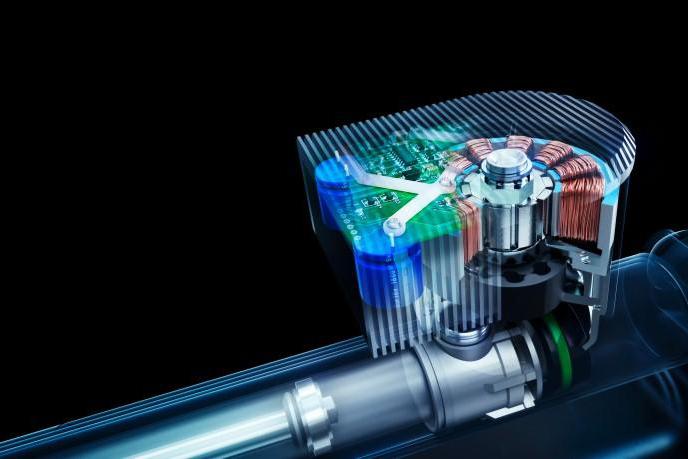
There have been two separate automotive battles waging over the last decade: active suspension development for improved performance and ride comfort and also the pursuit of drivetrain efficiency innovations. Now for the first time, the two worlds have collided in a very cool and wildly complex regenerative suspension system called “GenShock-technology.”
GenShock technology is the brainchild of German auto parts maker, ZF Friedrichshafen AG, and the Massachusetts-based Levant Power Corp. The companies boast the new suspension system offers sports car levels of handling refinement in tandem with unparalleled ride comfort while also capturing kinetic energy, which in turn could help power a mild hybrid, full hybrid or electric car.
Sounds like German witchcraft, right? Well, it very well might be. Here’s how ZF describes the system: “the innovative valve system automatically uses the swaying motion of the damper piston to recover energy. Then, the system guides the oil in the damper in such a way that it drives the electric pump motor. This then functions like a generator – it converts the kinetic energy generated into electricity and feeds it into the vehicle power supply, thus contributing to a reduction in CO2 emissions. This effect is most powerful when the vehicle is traveling on poor-quality country roads.”
Essentially, when put into production cars, municipalities will be disincentivized to fix rutty roads, as they will be essentially improving the fuel-efficiency of the cars traveling on the roadways – at least cars with the GenShock suspension. Heck, to achieve total eco-friendliness, we might just have to devolve back to wild, unpaved roadways of the early 20th century.
It’s these kinds of innovations that will push electrically-assisted cars of the near future into unforeseen levels of efficiency. Automakers will have to grab underutilized energy wherever they can in order to remain competitive.


